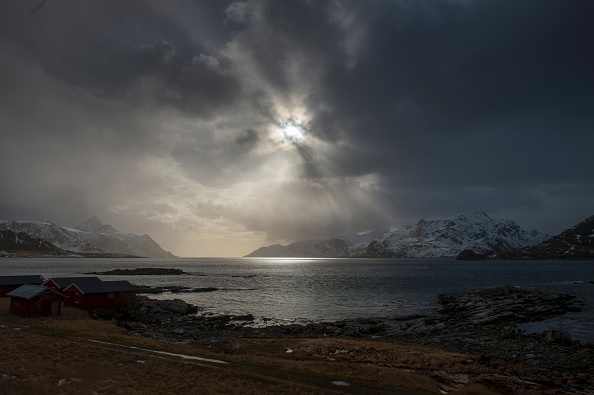Climate change models might have been wrong. The Earth could be warming even faster than we thought.


A free daily email with the biggest news stories of the day – and the best features from TheWeek.com
You are now subscribed
Your newsletter sign-up was successful
Computer models used to predict climate change could have a major flaw in how they determine the ability of clouds to cool the planet, a new paper published in Science suggests — and, if true, the new research means that making progress against rising temperatures is going to be even more difficult than was long expected.
The new paper looked at "mixed-phase" clouds, which are made up of both cooled water and ice crystals, The New York Times reports. Using data from a satellite monitoring the particles in the atmosphere, mixed-phase clouds appear to scientists to have more water and less ice than was first expected. Because water reflects solar radiation back into the sky, watery clouds help slow warming. But with less ice to begin with, there is naturally less of an ability for water to replace the ice, according to the scientists behind the new research. As a result, more warming occurs than was at first predicted.
If the data proves to be true, it could mean there will be an additional 1.3 degrees Celsius of warming than was modeled previously. Last year's climate talks in Paris had scientists agreeing to keep temperatures from rising more than 1.5 degrees over the Earth's temperature during the preindustrial era. That would have required keeping global temperatures from rising more than 2 degrees Celsius — so if the research on clouds proves to be correct, the range remaining for the Paris goal has shrunk to just 0.2 degree Celsius from 0.7 degrees.
The Week
Escape your echo chamber. Get the facts behind the news, plus analysis from multiple perspectives.

Sign up for The Week's Free Newsletters
From our morning news briefing to a weekly Good News Newsletter, get the best of The Week delivered directly to your inbox.
From our morning news briefing to a weekly Good News Newsletter, get the best of The Week delivered directly to your inbox.
"Every model will react differently: It could be higher, it could be lower [than 1.3 degrees]," the paper's author, Ivy Tan, said. "The point is, it's going to result in a significant amount of warming."
A free daily email with the biggest news stories of the day – and the best features from TheWeek.com
Jeva Lange was the executive editor at TheWeek.com. She formerly served as The Week's deputy editor and culture critic. She is also a contributor to Screen Slate, and her writing has appeared in The New York Daily News, The Awl, Vice, and Gothamist, among other publications. Jeva lives in New York City. Follow her on Twitter.
-
 Political cartoons for February 16
Political cartoons for February 16Cartoons Monday’s political cartoons include President's Day, a valentine from the Epstein files, and more
-
 Regent Hong Kong: a tranquil haven with a prime waterfront spot
Regent Hong Kong: a tranquil haven with a prime waterfront spotThe Week Recommends The trendy hotel recently underwent an extensive two-year revamp
-
 The problem with diagnosing profound autism
The problem with diagnosing profound autismThe Explainer Experts are reconsidering the idea of autism as a spectrum, which could impact diagnoses and policy making for the condition
-
 Key Bangladesh election returns old guard to power
Key Bangladesh election returns old guard to powerSpeed Read The Bangladesh Nationalist Party claimed a decisive victory
-
 Epstein files topple law CEO, roil UK government
Epstein files topple law CEO, roil UK governmentSpeed Read Peter Mandelson, Britain’s former ambassador to the US, is caught up in the scandal
-
 Iran and US prepare to meet after skirmishes
Iran and US prepare to meet after skirmishesSpeed Read The incident comes amid heightened tensions in the Middle East
-
 EU and India clinch trade pact amid US tariff war
EU and India clinch trade pact amid US tariff warSpeed Read The agreement will slash tariffs on most goods over the next decade
-
 Israel retrieves final hostage’s body from Gaza
Israel retrieves final hostage’s body from GazaSpeed Read The 24-year-old police officer was killed during the initial Hamas attack
-
 China’s Xi targets top general in growing purge
China’s Xi targets top general in growing purgeSpeed Read Zhang Youxia is being investigated over ‘grave violations’ of the law
-
 Panama and Canada are negotiating over a crucial copper mine
Panama and Canada are negotiating over a crucial copper mineIn the Spotlight Panama is set to make a final decision on the mine this summer
-
 Why Greenland’s natural resources are nearly impossible to mine
Why Greenland’s natural resources are nearly impossible to mineThe Explainer The country’s natural landscape makes the task extremely difficult
